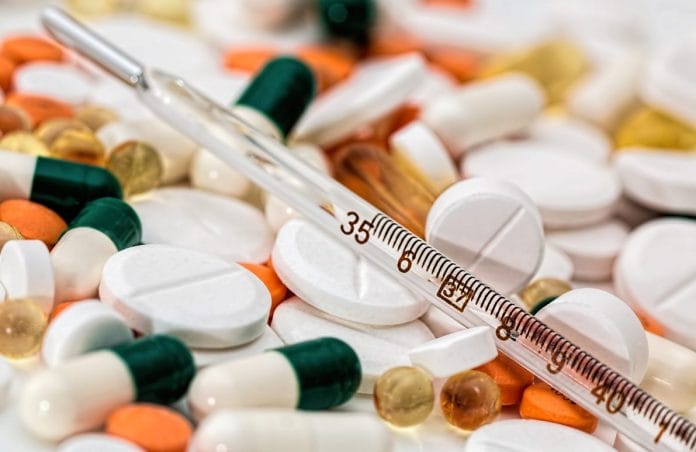Move assumes significance as WHO has termed antibiotic resistance as one of the ‘biggest threats’ to global health.
New Delhi: Doctors in India have started prescribing what are called ‘forgotten antibiotics’ such as penicillin, doxycycline and septran — which were discarded after the launch of new-gen drugs — as a means to fight drug-resistant bacteria or superbugs.
The move assumes significance as the World Health Organization (WHO) has termed antibiotic resistance as one of the ‘biggest threats’ to global health and development as patients have stopped responding to treatments or take time in responding.
While the trend of reusing old antibiotics seems relatively new in India, there has been considerable research undertaken in this field in some countries in the past few years. The Journal of Antimicrobial Chemotherapy released by Oxford University in August 2015 had suggested revisiting old antibiotics.
Also read: Expired medicines, no doctors & equipment: What audit of India’s govt health scheme found
“In the face of increasing antimicrobial resistance and the paucity of new antimicrobial agents it has become clear that new antimicrobial strategies are urgently needed. One of these is to revisit old antibiotics to ensure that they are used correctly and to their full potential,” an article published in the journal read.
However, researchers had also advised that significant risks were involved and revival of these antibiotics must be through structured clinical studies.
A means to fight superbugs
Dr K.K. Aggarwal, a Delhi-based cardiologist and former president of the Indian Medical Association (IMA), still uses penicillin, the first true antibiotic, discovered in 1928.
“Penicillin is my drug of choice for a rheumatic sore throat,” he said.
“Doxycycline, a broad spectrum antibiotic which came into commercial use in 1967, has become the best again for treating un-diagnosed illnesses,” Aggarwal added.
Chloramphenicol, which was discovered in 1947 but was discontinued due to its toxicity, is making a comeback albeit in safer modes. “It is effective against the deadly methicillin-resistant staphylococcus aureus (MRSA) bacteria that cause infections in different parts of the body,” said Sambit Dash, biochemistry professor at Melaka-Manipal Medical College, Malaysia.
Another drug, trimethoprim, first used in 1962 to treat infections in the bladder, was discarded due to its potential side-effects on pregnant animals but not humans. Now, the drug is proving to be effective against scarlet fever — a bacterial illness that develops in some people who have strep throat. “It is also found to be effective in skin and throat infection-causing bacteria streptococcus pyogenes in patients from Germany and India,” Dash added.
Bactrim, which was used to treat typhoid, was discarded after the bacteria developed resistance to it. But this is now proving to be effective in many cases. Another drug, colistin, was popular for the treatment against pneumonia in the 1940s but it was later junked due to side-effects on kidneys.
“In some cases, reports of damage to kidney proved to be a myth after we conducted more studies on those drugs. In other cases, we have started using the refined forms of these antibiotics,” said Chandrashekhar Tulasigeri, director of the department of intensive care medicine, Hiranandani Hospital, Navi Mumbai.
“I miss prescribing tetracycline’s tablets and injections, gentamicin injection, cotrimoxazole, diloxanide furoate, erythromycin and fortified procaine penicillin among several other old antibiotics,” Tulasigeri said.
What is drug resistance?
Drug resistance is a phenomenon when bacteria develop the ability to defeat the drugs designed to kill them. The WHO has sounded an alarm over the issue of antibiotic resistance. According to a research paper commissioned by the British government, 10 million people will die every year due to antimicrobial resistance (AMR) by 2050 unless a global response to the problem of AMR is mounted.
The paper also says that in India, antibiotic-resistant neonatal infections cause the deaths of nearly 60,000 newborns each year.
A new experiment
It takes decades for new antibiotics to arrive in the market. In such a situation, new approaches to deal with antibiotic resistance are being thought about, including using a combination of non-antibiotics with failed antibiotics, deploying natural antimicrobial products, and reviving out-of-use antibiotics, experts say.
“With more and more bugs becoming drug resistant and not having much in the research pipeline, we have no option but to consider older antibiotics, in the same old form or with modification in strength or structure or combination,” said Tulasigeri.
While the medical community expects the pharmaceutical industry to revisit many of these ‘forgotten antibiotics’ to help fight antibiotic resistance, some pharma firms said it is still an “unviable business proposition”.
“We cannot start producing a drug in uncertainty because it has started proving efficient today,” said an official of a Mumbai-based listed pharma firm.
Also read: Heart drug Valsartan is safe for consumption in India, says drug regulator
“We have invested a lot in new medicines. Why would we encourage the sale of drugs which were abandoned earlier as ‘outdated’ medicines?” he asked.
Another listed company in Mumbai echoed similar sentiments. “We don’t see a big opportunity in bringing back the discarded drugs or increasing the production or availability of those old days’ antibiotics,” said a senior official of the company.
“From a business point of view, we can’t generalise the comeback of ‘forgotten antibiotics’ as a trend yet,” she added.







The Martial law Government wants Generals all over all nations take a pledge Not to wage a war or raise weapons against each other
Rather they rescue people in need like Kerala Floods etc
We donot want any to rule Ideas should be empowered and Not some Modi and Pinarayi or any
Chief Martial Law Administrator(Globe)